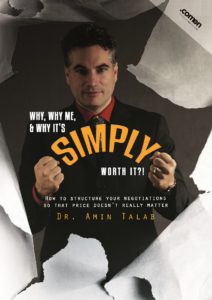Learning by making mistakes

Striving to improving your negotiation skills can be a humbling enterprise. When designing the Master Negotiator Curriculum, I ensured participants learn by mastering different objectives in negotiation cases, i.e. role-play simulations.
I am choosing these cases specifically to expose inconsistencies in argumentation, option seeking or strategy, such as the tendency to be overconfident or to assume that they are in a zero-sum-game.
Delegates (and people in general) tend to feel threatened when they discover that they have been making bad decisions because their intuition was flawed. If they see these mistakes as a personal deficiency, they sometimes start making excuses, blaming the very case and setting for being unrealistic or even unfair. They feel “tricked”.
In order to grow negotiation skills, however, changing sub-optimal behavior presupposes feeling uncomfortable with some aspects of a specific action.
Otherwise, why should you even change (it)? This is the reason I reserve quite a bit of time in the beginning of any training to explaining the importance of giving and receiving feedback. It is essential and making mistakes a prerequisite to learning.
Feedback like “you were pretty good, stay like you are” is simply not enough. It is impertinent to be able to name the specific action that should be changed, and how. Only then can the participant choose freely whether they want to try a new line of action.
In negotiations, sometimes you win,
and sometimes you learn.
Brain research has firmly shown that negotiators are susceptible to judgment biases and perception traps like the “Primacy” or “Halo” effect (see Master Negotiator p108). These shape our decisions in negotiations unconsciously.
Once you allow yourself that awkward feeling of making mistakes, you’ll be in a much better position to change patterns that help you improve your negotiations relationships, options and outcomes.
So before going into your next negotiation, make sure you win either way: getting your objective, or learning what you could do better next time.
Tip: Don´t waste your mistakes. I am here to help preparing you for your negotiation and spotting your learning experience as your Negotiation Joker.

